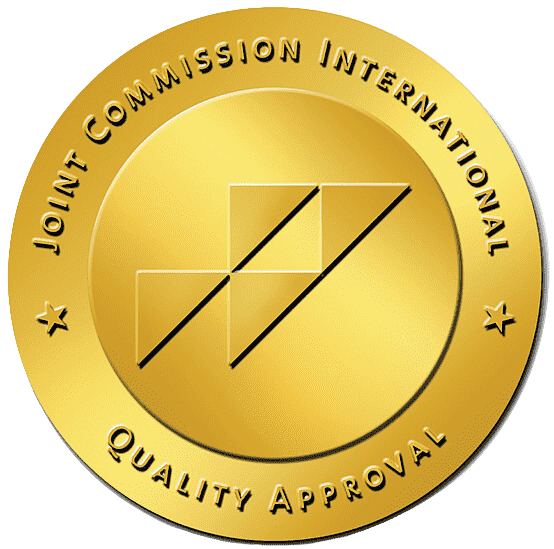Understanding Mental Health Conditions
Impact of Common Conditions
Mental health conditions affect millions of people worldwide, impacting their daily lives and well-being. Common conditions such as depression, anxiety, and bipolar disorder can interfere with thoughts, feelings, and behaviors. They often manifest in various symptoms that can range from mild to severe, affecting one’s ability to function effectively at work, school, or in social settings.
It’s crucial to recognize the signs and symptoms of these conditions to seek timely intervention. Depression might present as persistent feelings of sadness, loss of interest in activities, and fatigue, while anxiety could cause excessive worry, restlessness, and physical symptoms like a rapid heartbeat. Bipolar disorder often includes episodes of both depression and mania, characterized by high energy, reduced need for sleep, and sometimes risky behavior.
Statistics from the U.S. Census Bureau reported by CNBC reveal that 42% of U.S. adults experienced symptoms of anxiety and depression by the end of 2020, a significant increase from previous years. This surge underscores the need for accessible and effective mental health treatment.
Importance of Seeking Help
Seeking professional help for mental health conditions is essential for managing and improving one’s well-being. Unfortunately, the stigma surrounding mental health often prevents individuals from reaching out for support. Overcoming this stigma is vital to prevent conditions from worsening and to avoid severe outcomes, including self-harm.
Healthcare professionals, educators, and organizations are actively working to remove myths and encourage a supportive attitude towards behavioral health treatment. It’s important for individuals and their loved ones to recognize the signs of mental health issues and understand that seeking help is a crucial step towards recovery. The spending on mental health treatment and services in America reached $225 billion in 2019, reflecting the growing recognition of its importance (CNBC).
At Cottages on Mountain Creek, we offer a range of programs to address various mental health needs, including dual diagnosis treatment, php treatment, and iop treatment. It’s essential for individuals to explore these options to find the best fit for their needs.
Understanding mental health conditions and the importance of seeking help can make a significant difference in overcoming challenges associated with mental health. For more information on our services and how we can help you or your loved ones, explore our range of residential treatment and transitional independent living programs.
Effective Therapies for Mental Health
At Cottages on Mountain Creek, we offer a range of effective behavioral health treatment solutions tailored to meet the unique needs of each individual. Below, we explore several key therapies that significantly contribute to our comprehensive mental health treatment programs.
Cognitive Behavioral Therapy (CBT)
Cognitive Behavioral Therapy (CBT) aims to explore the relationship between a person’s thoughts, feelings, and behaviors, according to the National Alliance on Mental Health (NAMI). This evidence-based therapy is effective for various disorders, including depression, anxiety, and PTSD (Medical News Today). By helping individuals identify and challenge negative thought patterns, CBT enables them to develop healthier coping strategies and behavioral changes.
Dialectical Behavior Therapy (DBT)
Dialectical Behavior Therapy (DBT) focuses on regulating emotions, being mindful, and accepting uncomfortable thoughts and feelings. This therapy has shown remarkable results in improving depressive symptoms, increasing general well-being, and reducing hospitalization, especially in individuals with borderline personality disorder (BPD) (Medical News Today).
DBT combines individual therapy sessions with group skills training to help clients build four key skills:
- Mindfulness – Enhancing awareness.
- Distress Tolerance – Surviving crises.
- Emotion Regulation – Managing emotions.
- Interpersonal Effectiveness – Navigating relationships.
Eye Movement Desensitization and Reprocessing Therapy (EMDR)
Eye Movement Desensitization and Reprocessing Therapy (EMDR) involves recalling a traumatic event while performing specific eye movements. The goal is to replace adverse reactions to painful memories with less charged or positive responses. Although the benefits of EMDR remain controversial, it is widely used for treating trauma and PTSD.
Exposure Therapy
Exposure Therapy, a form of CBT, is primarily used to help treat various conditions such as PTSD. Prolonged exposure therapy, which is a subtype of this therapy, may benefit those with single or multiple types of trauma, especially adolescents and children (Medical News Today). The therapy involves controlled exposure to the source of fear, helping individuals gradually reduce their anxiety responses.
By integrating these therapies into our programs, we ensure a personalized and effective approach to mental health treatment. Each therapy is designed to address specific mental health challenges and promote overall well-being. To learn more about our programs, explore our sections on PHP treatment, IOP treatment, and residential treatment.
Family Involvement in Treatment
Benefits of Family Therapy
Family therapy plays a fundamental role in behavioral health treatment, particularly for families with adolescents experiencing mental health issues. This therapeutic approach focuses on working with the entire family unit to resolve specific issues that may contribute to or exacerbate underlying problems. At Cottages on Mountain Creek, we recognize the immense benefits of family involvement in the treatment process.
Enhanced Communication
One of the primary benefits of family therapy is the improvement of communication within the family. By involving family members in therapy sessions, we can identify and address communication barriers. This helps create a supportive environment where members can express their feelings openly and without judgment. Effective communication nurtures stronger relationships and fosters emotional support, which is crucial for individuals undergoing mental health treatment.
Understanding and Healing
Family therapy provides an avenue for all members of the family to gain a deeper understanding of the mental health issues affecting their loved one. This shared understanding promotes healing and empathy, which are essential for providing adequate support. Families learn to identify triggers and stressors that may affect the person receiving treatment, and they develop strategies to alleviate these stressors together.
Addressing Family Dynamics
Behavioral health treatment often involves examining and addressing the family dynamics that contribute to an individual’s mental health condition. Family therapy can highlight destructive patterns and behaviors, providing a pathway to change. By addressing these dynamics, families can function in a healthier and more supportive way that benefits everyone involved.
Alleviating Isolation
Family involvement can significantly reduce the feelings of isolation that often accompany mental health issues. Knowing that they have the support of their families encourages individuals to engage more fully in their treatment. This sense of support is particularly beneficial in settings such as our residential treatment and day programming, where ongoing family involvement can enhance the overall therapeutic experience.
The Role of Immunotherapy in Mental Health
Immunotherapy is increasingly explored in the field of mental health as a potential treatment option. At Cottages on Mountain Creek, we believe in providing comprehensive behavioral health treatment that includes cutting-edge therapies like immunotherapy.
Mechanism and Side Effects of Immunotherapy
Immunotherapy works by stimulating the immune system to attack cancer cells. While traditionally associated with cancer treatment, its principles are being applied to mental health care. Understanding its mechanism and potential side effects is crucial for those seeking holistic care.
Mechanism of Immunotherapy
Immunotherapy leverages the body’s immune system to identify and target abnormal cells. This approach can be beneficial for conditions where the immune system plays a role in symptom manifestation. There are various types of immunotherapy, each with a unique mechanism:
- Immune Checkpoint Inhibitors: These drugs block proteins that prevent immune cells from attacking cancer cells.
- Monoclonal Antibodies: These laboratory-created molecules can mimic the immune system’s ability to fight off harmful pathogens.
- CAR T-Cell Therapies: Involves modifying T cells to enhance their ability to target and destroy cancer cells.
Common Side Effects
Side effects of immunotherapy can differ significantly from those of traditional treatments like chemotherapy and radiation therapy. Early recognition and management are key to maintaining safety and efficacy (Cancer Research Institute).
| Side Effect | Description |
|---|---|
| Skin Reactions | Rash, itchiness, and redness, especially at the injection site |
| Fatigue | General tiredness and lack of energy |
| Fever | Elevated body temperature potentially indicating the immune system’s response |
| Nausea | Sensation of needing to vomit |
Severe Side Effects
Severe side effects, though less common, can be life-threatening. These may include inflammation, indicating an overactive immune response. It’s crucial to consult medical professionals if severe side effects arise.
| Severe Side Effect | Potential Indication |
|---|---|
| Inflammation | Overactive immune response, affecting lungs, liver, or other organs |
| Autoimmune Reactions | Immune system attacking healthy cells |
| Neurologic Toxicity | Symptoms like confusion, seizures, and vision changes |
Patients may experience side effects within days or weeks of starting treatment, but they can also appear months later. Promptly reporting any unusual symptoms ensures necessary adjustments to the treatment plan.
For more comprehensive mental health treatment plans that might include immunotherapy, visit us to explore options tailored to your needs. We also offer other services like dual diagnosis treatment, php treatment, and iop treatment.
Integrating Behavioral Health in Primary Care
Enhancing Patient Outcomes through Integration
Integrating behavioral health services into primary care settings is essential for improving patient outcomes, especially those in need of comprehensive mental health treatment. At Cottages on Mountain Creek, we believe that a holistic approach to healthcare, which includes behavioral health integration, is vital for the well-being of our patients.
According to the National Center for Biotechnology Information (NCBI), behavioral health problems significantly affect patients’ health and quality of life. Integrating these services into primary care can enhance access to care, improve patient outcomes, reduce healthcare costs, and enhance the patient’s care experience (NCBI).
Benefits of Integration
| Benefit | Description |
|---|---|
| Enhanced Access to Care | Patients receive coordinated care without the need for external referrals. |
| Improved Patient Outcomes | Comprehensive treatment plans address both physical and mental health. |
| Reduced Healthcare Costs | Preventative care and early intervention reduce long-term expenses. |
| Enhanced Patient Experience | Seamless care delivery improves satisfaction and adherence. |
Research from NCBI emphasizes the need for practical guidance to help primary care practices select and implement behavioral health integration approaches. The Behavioral Health Integration Implementation Guide offers valuable resources for achieving access and accountability through integrated care.
Practical Tools for Integration
To support primary care practices in this transformation, tools like the GROW Pathway Planning Tool are invaluable. This tool aids in identifying paths toward integration, focusing on assessment, goals, resources, options, and workflow related to behavioral health services.
Additionally, the rise of nontraditional mental healthcare services, such as mobile apps, peer counselors, and online support groups, has enhanced access to behavioral health services. These innovations merge traditional services with nontraditional options, providing more flexible and accessible care, particularly for young people (PubMed Central).
Our Commitment
At Cottages on Mountain Creek, we are dedicated to integrating behavioral health services as part of our comprehensive treatment approach. This integration is a cornerstone of our residential treatment and day programming services. By combining physical and mental health care, we strive to provide the best possible outcomes for our patients. Our commitment extends to various programs, including dual diagnosis treatment, PHP treatment, and IOP treatment.
By focusing on integrated care, we ensure that our patients receive the support they need to navigate their mental health journey successfully. For additional details on our holistic approach, explore more about our substance abuse treatment and transitional independent living program.





